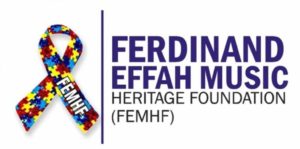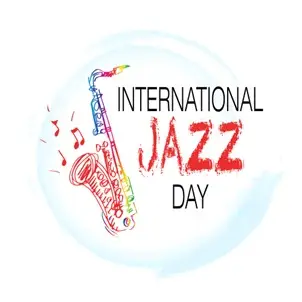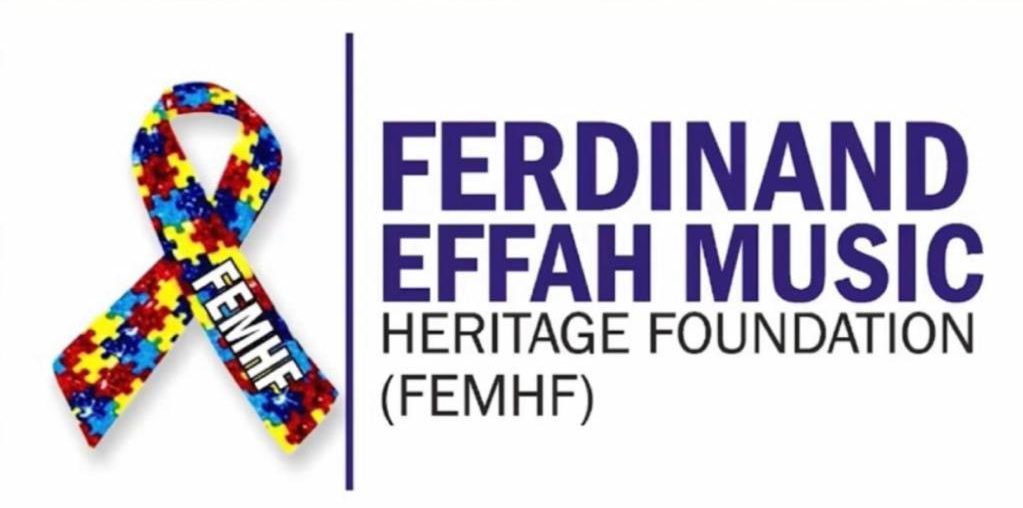
CAC: RC 174145

The significance of jazz music in Autism!

In November 2011, the United Nations Educational, Scientific and Cultural Organization (UNESCO) officially designated April 30th as International Jazz Day to highlight jazz music and its diplomatic role at uniting people in all corners of the globe. This year’s edition of the International Jazz Day is celebrated today in more than 190 countries, with Abu Dhabi selected as the Global Host City.
As part of the celebration of this day, the Ferdinand Effah Music Heritage Foundation (FEMHF) was able to give out in compliment, digital folios of selected number of playlist songs (in jazz) to some affectionate autism minded families and designated autism special centers within the neighborhood. Our emphasis is for these families and special autism centers to duly recognize this very day and the impact of jazz music as a significant therapy in autism management. We encourage families with autistic children and the special centers to use today the 30th of April, 2025 to organize at least a two-hour jazz music listening session for all autistic persons under their care / facility.
We also use this day to formalize our commitment to organizing educational workshops on the importance of music to autism and our plan to organizing a yearly musical charity concert event at promoting awareness and acceptance for autism in Nigeria, featuring local jazz and afrobeat musical artists. The theme for the planned annual musical charity concert event “Harmony for Autism” calls for society’s compassionate acceptance of autism, and a fundraiser to help in charitable causes that would support the lives of autistic people and families as we aim to inspire positive changes and foster a sense of inclusiveness with hope.
Jazz music can be very beneficial for individuals on the autism spectrum, offering opportunities for self-expression, social interaction, and cognitive development. The complex rhythms and improvisational nature of jazz can be particularly appealing to autistic individuals who appreciate structured patterns and details. Jazz music can also serve as a tool for emotional expression and self-regulation, fostering a sense of agency and control.
For more insight however, here’s a more detailed look at the connection and benefits of jazz music for individuals with autism:
- Self-Expression and Creativity: Jazz music allows for improvisation and personal interpretation, providing a unique outlet for autistic individuals to express themselves creatively.
- Social Interaction: Jazz music can be a catalyst for social connections, as seen from the activities of FEMHF which provides musical training and social support for autistic individuals.
- Cognitive Development: The rhythmic patterns and complex structures of jazz music can enhance cognitive skills, particularly in areas like pattern recognition and auditory processing.
- Emotional Regulation: Jazz music can be used for self-regulation, with different tempos and dynamics influencing mood and anxiety levels.
- Interoceptive Awareness: Engaging with music can help individuals become more attuned to their own internal states, improving emotional literacy and self-understanding.
- Neurodiversity and Representation: FEMHF celebrates the talents of potential autistic musicians as we keep looking forward to creating a supportive environment for neurodiversity in the Nigerian music industry.
Specific Examples:
- At FEMHF: We provide music education and vocational training for autistic individuals, helping them develop musical skills and gain confidence in social situations; such as with the case of Ferdinand Effah.
- Sam Baum: A jazz pianist and composer with autism, his story highlights how music can serve as a powerful form of self-expression and a means of connecting with others.
- Several other Autistic Musicians: Numerous autistic musicians, like Marty Balin, have achieved success in the music industry, demonstrating the potential that autistic individuals can also excel in the arts.
Considerations:
- Individual Preferences: Not all autistic individuals enjoy jazz music, and preferences can vary based on individual sensory sensitivities and musical tastes.
- Sensory Overload: The intensity of some jazz performances can be overwhelming for some autistic individuals, so creating a comfortable listening environment or utilizing sensory-friendly strategies may be necessary.
In conclusion, jazz music can offer a unique and valuable experience for autistic individuals, fostering self-expression, social connection, and cognitive development. FEMHF is actively working in collaboration with several other stakeholders to create inclusive spaces in Nigeria for autistic musicians and music enthusiasts alike.
Wishing you a wonderful international Jazz Day celebration 2025.
Stanley Effah
President & Trustee – FEMHF


